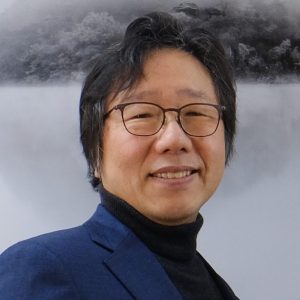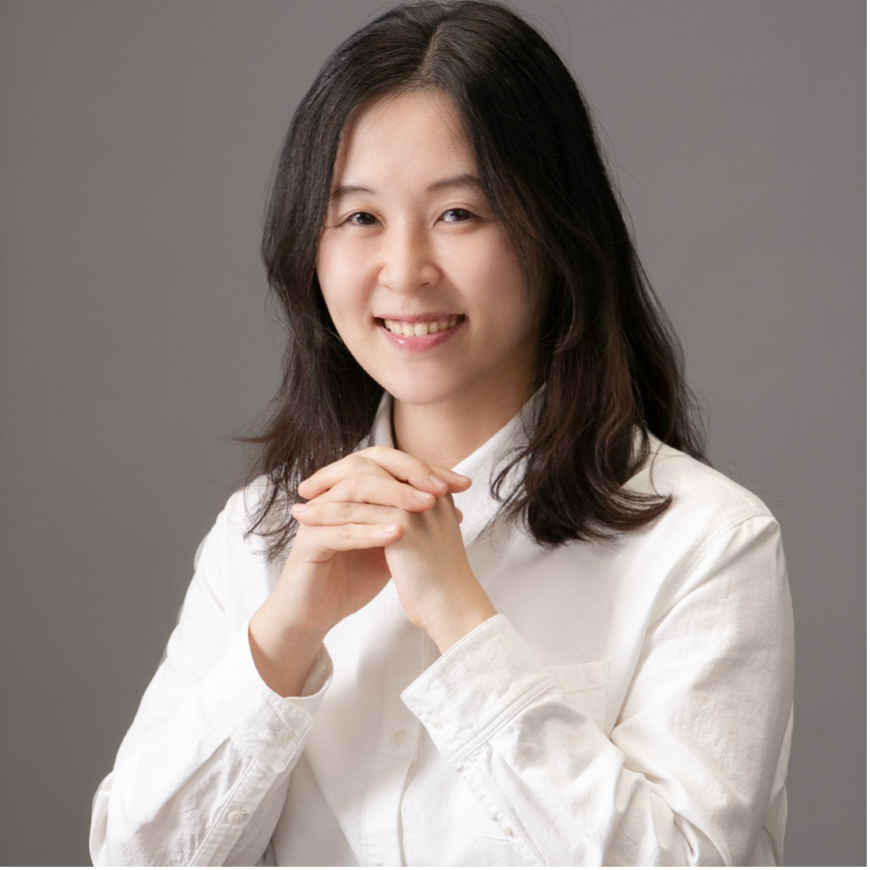|
|
|
|
South Korea Care Economies in Context Team Biography
|
|
|
|
|
|
The Care Economies in Context South Korea team is made up of researchers and students, with extensive links with the policy sector and field activists.To view the biographies, click here
|
|
|
Ki-Soo Eun and the Study of Care Economy
|
|
|

|
In a video, Ki-Soo Eun, professor of Sociology and Demography at the Graduate School of International Studies, Seoul National University and the country lead of South Korea’s Care Economies in Context project, describes what drew him to study the care economy. |
|
|
Care Economy in Context: An interview with South Korea Team
|
|
|
| In an interview, the Care Economies in Context project team in South Korea answer questions addressing the work they have done on the project, the major issues they see facing South Korea’s care economy, and the kinds of change they would like to see. They also discuss the barriers that exist and the hopes they have for economic modeling. |
|
|
|
Aging Societies and Care Economy: Gender, Transnational Migration, and Development
|
|

|
|
On November 16th and 17th 2022, the Center for Transnational Migration and Social Inclusion (CTMS) hosted the 2022 International Care Conference at Seoul National University’s Gwanak Campus. Prominent domestic and foreign experts were invited to exchange various opinions on ways to build a caring society and a sustainable care economy from the perspectives of gender, transnational migration, and development. For more information, click here.
For conference report, click here
For video recordings of the talks on the care economy (with subtitles), click here
|
|
|
The Care Economy in Korea: Beyond COVID-19 and Towards a Sustainable Caring Society
|
|

|
|
On June 2nd-4th, the 2021 International Care Policy Conference [“The Care Economy in Korea: Beyond COVID-19 and Towards a Sustainable Caring Society”] was hosted by the Center for Transnational Migration and Social Inclusion (CTMS) of Seoul National University, with the support of Open Society Foundations, Care Work and the Economy from American University and The Population Association of Korea in Seoul, South Korea. For more information, click here.
For conference report, click here
For video recordings of the talks on the care economy (with subtitles), click here
|
|
Developments within Korea’s Care Sector
|
|
|
|
|
|
|
|
South Korea: Social Policies
With efforts to expand the welfare state having had little immediate effect, South Korea’s social policies fall into the middle ranks (rank 22) in international comparison. Its score on this measure has improved by 0.3 points since 2014. Paternal leave, child support benefits and childcare availability have been expanded; nonetheless, there are numerous disincentives to women entering the workforce, and birth rates are extremely low. Read more
|
The Political and Social Economy of Care: Republic of Korea Research Report
The institutional arrangements making up the care diamond in Korea have changed quite noticeably since the 1990s in response to the country’s evolving political, economic, and social contexts. Using the case of family-work harmonization policy reforms . Read more
|
|
The Cost of Caregiving to Caregivers of South Korea
Conventionally, caregiving is considered a household activity that relates to parents raising their infant and young children and adult children taking care of their older parents. Care is broadly categorized into eldercare and childcare but may also include household chores such as cleaning and cooking. There is a dependency between the caregiver and care-receiver, involving both a financial and time cost to the caregiver. Read more
|
Social and Solidarity Economy and Socio-economic Development
The socio-economic development model adopted by South Korea with some success for about thirty years (1965-1997) has enabled this country, among one of the poorest country on the planet at the end of the 1950s, to enter OECD in 1996 and be part of the major world economic powers today. In the course of this development, the social economy was continuously smothered in favour of family, market and State that occupied most of the ground. Read more
|
|
Improving Korea’s Long-Term Care for the Elderly
Elderly care in Korea has traditionally been a family responsibility. A 2006 government survey reported that 67.3% of Koreans believed that caring for older parents is a family responsibility, but that view was held by only 32.6% in 2016. The shift was likely accelerated by the introduction of universal long-term care insurance (LTCI) in 2008. Korea was the second Asian country after Japan to introduce a social insurance system that provided comprehensive universal long-term care coverage for the elderly. Read more
|
The Progression of South Korea’s Childcare Model
South Korea’s childcare model started developing when the Child Welfare Act (the Act) was first introduced in 1962. The Child Welfare Act initiated a structured system-level approach to the childcare sector. The Act was still grounded in the notion that families are solely responsible for childrearing unless the children have special needs, in which case government support and protection is warranted. The 1962 law shows clearly that the South Korean government envisioned childcare as a family responsibility, rather than a social policy, which is in accordance with other countries yet to introduce a social welfare system. Read more
|
|
Beyond Data: Child Care in South Korea
Working mothers in South Korea are in a battle to balance family and professional life. One of the largest barriers to achieving this balance is inflexibility in the workplace with newborn infants coupled with inconsistencies in childcare.. Read more
|
A Profile of Health Care in South Korea
South Korea is one of the many countries in the world that provides universal health care for its citizens. This universal health care is both a source of relief and national pride for many South Koreans. This pride is further amplified by the fact that modern health care in South Korea rose out of the devastation of the Korean War. With the recent COVID-19 global pandemic, South Koreans rely, now more than ever, on their health care system. Read more
|
|
|
Country Report: South Korea
|
|
|
|
The Centre for Global Social Policy hosted researchers involved in the Care Economies in Context project on September 21–23, 2022, at the Department of Sociology of the University of Toronto. Here is a link to a presentation outlining current knowledge about the care economies in South Korea.
|
|

|
|
The Banting Postdoctoral Fellowship is a prestigious award that is available to both Canadian citizens and foreign nationals. Providing $70,000 per year for two years, the Banting program aims to “attract and retain top-tier postdoctoral talent, both nationally and internationally; develop their leadership potential; and position them for success as research leaders of tomorrow.” We encourage recent PhD graduates interested in pursuing a postdoctoral fellowship at the Centre for Global Social Policy to consider applying for The Banting Postdoctoral Fellowship. For more information, click here.
|
|
April Newsletter
The March newsletter focused on Care Economies in Context in Colombia. To view the newsletter, click here.
|
March Newsletter
The March newsletter focused on Care Economies in Context in Mongolia. To view the newsletter, click here.
|
February Newsletter
The February newsletter focused on Care Economies in Context in Canada. To view the newsletter, click here. |
|
|
|
|
|
|
|
|
|



